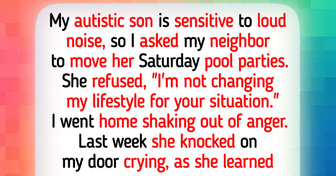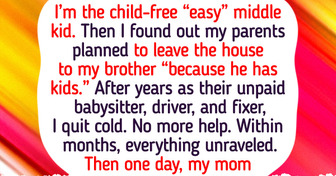12 Moments That Show Romance Is Really About Small Acts of Kindness

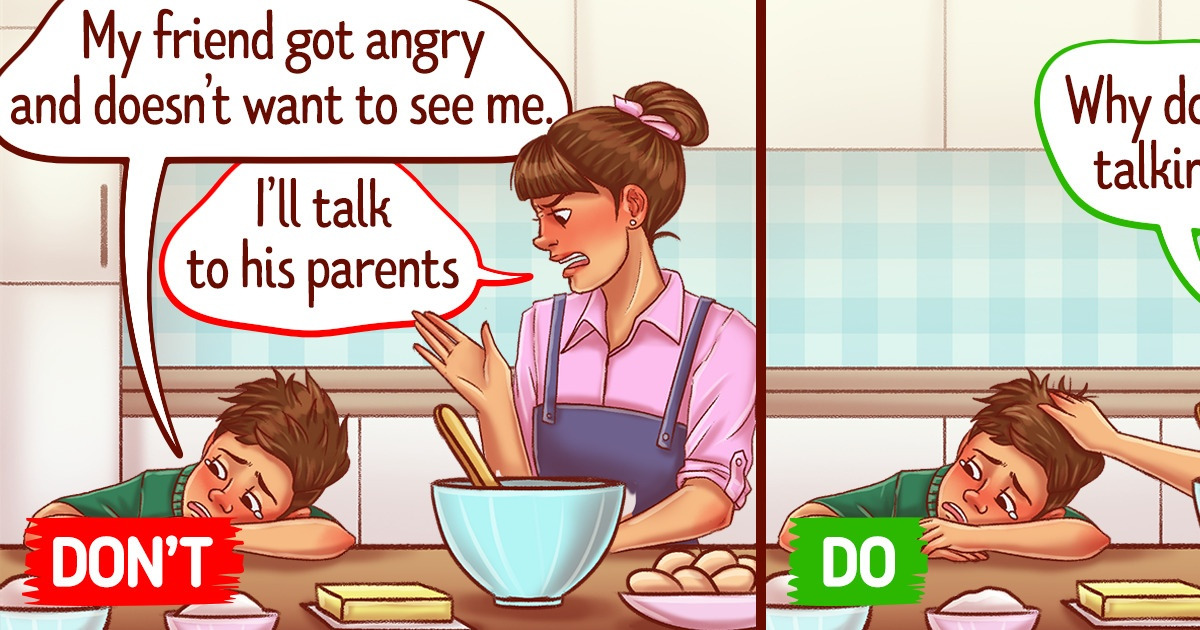
Being a parent is something you learn from the moment you hold your baby in your arms, and unfortunately there is no book that explains how to do it, so it is normal that, basically, everyone does whatever they can. In that learning adventure, there may be attitudes and things we do as parents that we think are beneficial for our children, but in reality, they have negative undertones.
At Bright Side, we found out which things parents commonly do thinking they’re helping their kids, when actually, the opposite happens.
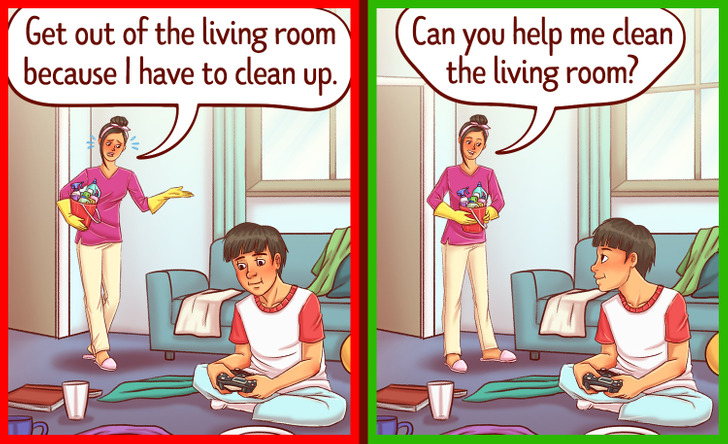
Many parents may not want to burden their children with “adult chores,” but it is necessary to teach them from a young age to help them develop skills that will allow them to become independent later on. For example, doing household chores gives them a sense of responsibility and builds their confidence, as they can see that their contribution is valuable to their family.
Another option may be to introduce them to cooking, while babysitting can help them develop responsibility and maturity, as well as help them organize their schedule just to learn to know what to do and where to be on their own.

When a baby arrives home, couples can say goodbye to sleeping in for hours and doing fun stuff. But taking care of children at any age is no excuse to let the relationship die. A psychologist advises making bedtime a priority, since, by doing so, both will function better the next day. It is also good to give the benefit of the doubt when the other forgets to do something, as lack of sleep and tiredness may be the main reason.
It also helps to maintain a happy relationship and to thank each other for doing this or that, to find and have a hobby together, and to allow each other to talk and complain about what is going on and what you feel.

Of course, all parents want their children to eat healthy, so they can grow up healthy, but vegetables and fruits are not the most attractive option in the eyes of children, and forcing them to eat them will only cause more rejection. Specialists have advised making the foods that children do not like more enjoyable for them.
First of all, it is necessary to understand that a child will know how to listen to their body, so they will understand when they need to eat and when they do not. In addition, the meal starts before sitting at the table. Growing vegetables in a garden or in the kitchen will encourage them to try something new.
Another thing is that adults should not belittle other foods with their words, because their interest will diminish much more. It is good to encourage little ones to try new things, because the more they try in childhood, the more food they will be able to tolerate.

Telling your child that they are a genius at a certain thing, that they have talent or a natural gift, will certainly motivate them and help them achieve success. But equally, encouraging their “talent” and not what they did to achieve it could lead to narcissism and also damage their self-esteem.
Experts advise congratulating children for their efforts in achieving what they set out to do, as this will normalize hard work. It is also good to celebrate the mistakes they made while learning, as this will help them master difficult tasks and move forward in the face of setbacks.
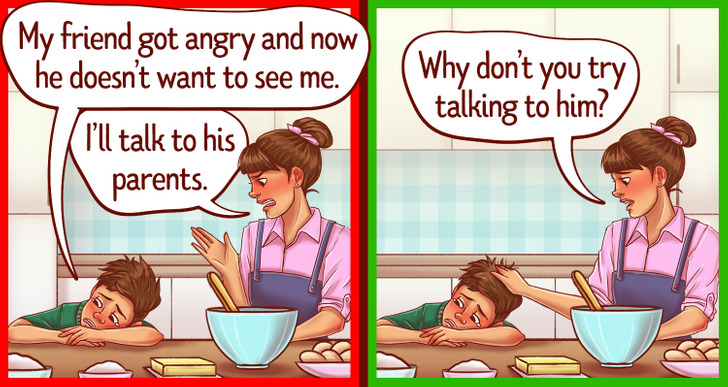
Every parent wants their child to live happily without any worries, but inevitably we all go through bad times. Avoiding negative experiences by solving their problems for them will not be beneficial to their life.
The best thing you can do is to teach them to solve their setbacks by themselves, so they will become more confident and independent. They will not be frustrated with the difficulties that come their way, and they will have the tools to solve them creatively and persistently.
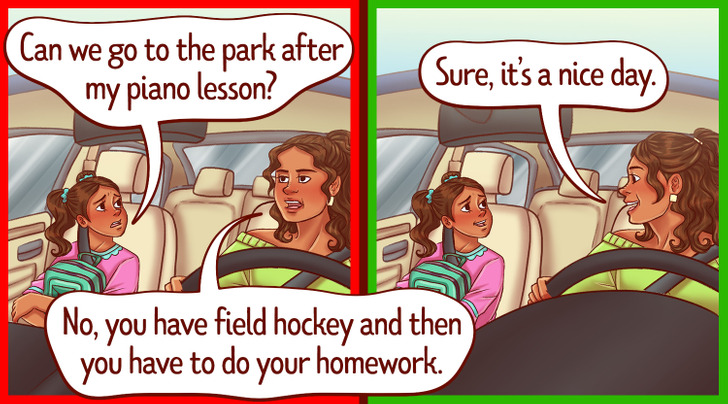
It’s normal to want to give our children the opportunity to try sports and cultural activities to develop their talents, but it’s not good when that takes up most of their life outside of school. Children with busy schedules can become overwhelmed by what adults expect them to do during the day, and that can lead to moodiness, irritability, despondency, anger, stomachaches, headaches, and even rebellion.
In addition, children need to have free time to do nothing and just be kids. For example, by playing with others, they develop their creativity and social skills, and this also promotes cognitive, physical, and emotional development.
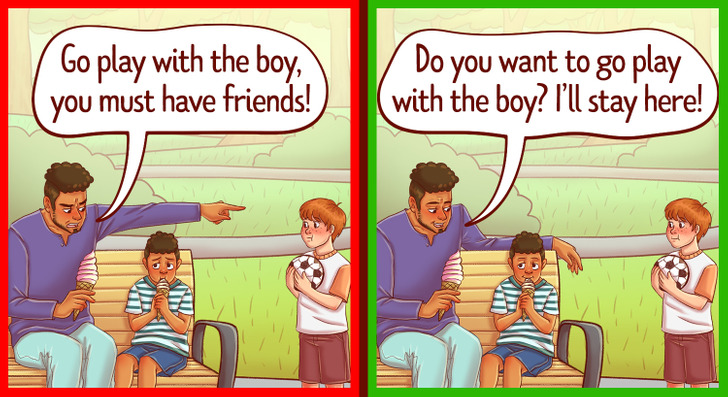
Social life is an important part of a child’s growth and future life, but for some, it is not very easy to make friends because everyone develops their ability to socialize at their own pace. Forcing them to interact with people is not the solution, because according to a psychologist, “it can generate a rebound effect that causes them to isolate themselves or rebel against the fact of relating to others.”
What we have to do is to motivate them and provide them with the means to learn to socialize, placing them in environments, situations, and circumstances that facilitate interaction with other children, so that they can learn and practice their social skills until they become pleasurable.
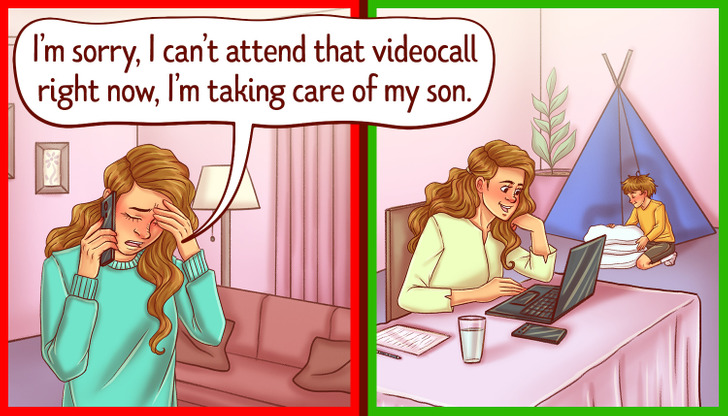
Being with your child all the time can give you the certainty that they are well and protected, but although cutting the cord may be difficult, it is also good for them to spend time alone.
When a child spends time playing alone, they learn important life values, like self-entertainment and not needing to depend on others to be happy, becoming socially independent, i.e. not needing to be surrounded by people, and feeling safe being alone. This also brings a sense of calm and self-control, and something very important: it gives parents a break!

Wanting children to have the best clothes, the best toys, and the best in the things they need can not only impact the family budget but also set a bad example about the use of money. The best thing to do is to teach them about its importance, and one expert says we should do this before the age of 7, explaining what it is and its value.
It is also good to instill in them the importance of having a budget and that saving is effective for future purchases. You can even provide them with their own money through their efforts, like giving them a reward for doing household chores.
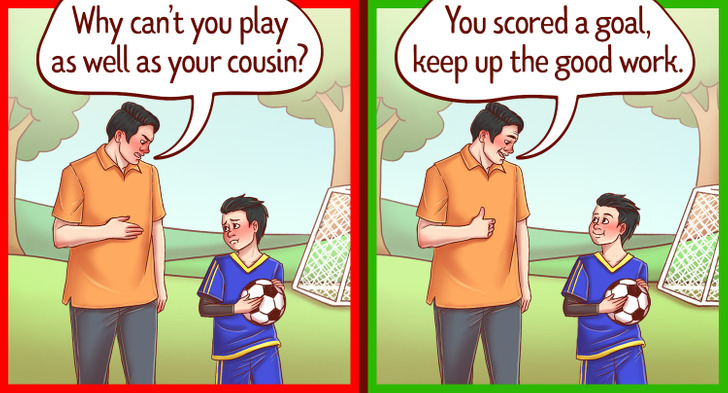
It is normal for one child to have abilities that another does not, because we are all different! But making comparisons between a child and other children and encouraging them to be like others does more harm than good.
It can lead to envy, jealousy, and rivalry, especially if it involves siblings. It also hurts their self-esteem, since we are showing them that they do not have certain characteristics we would like for them to have, and we do not emphasize the good ones they already have, making them feel insecure and less loved. To encourage them, you can reinforce those attitudes that you want in them when they appear and not when they imitate these traits in others. In addition, you can celebrate their positive behaviors, so that they know they are valued.
Where do you think you have not done right as a parent? How have you been able to change that in order to improve? What advice do you have for other parents?



